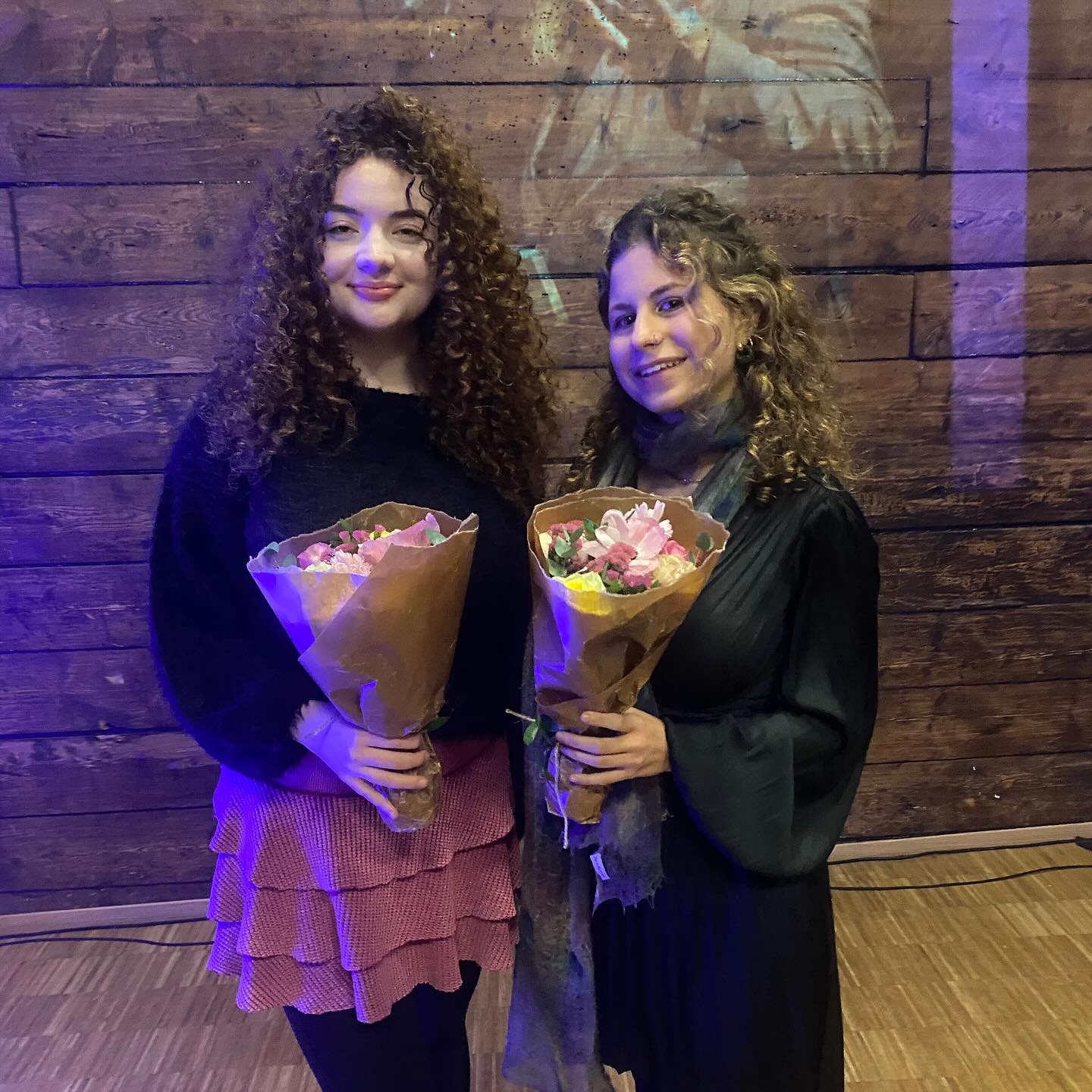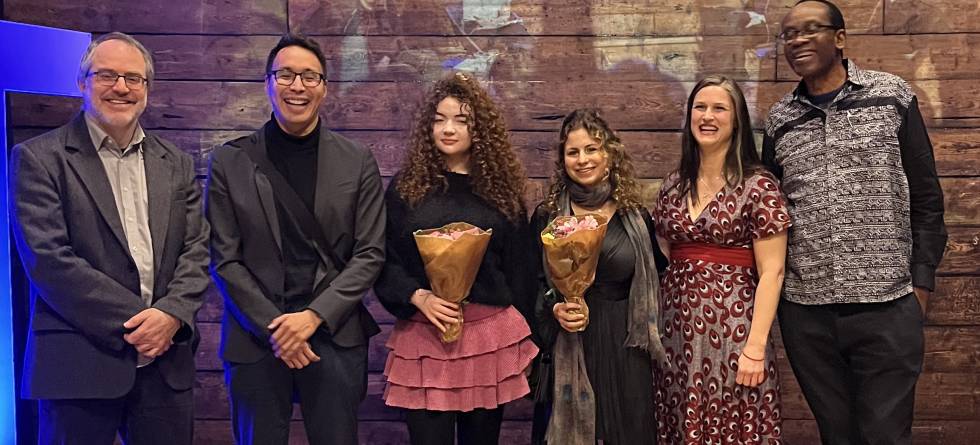How do young people around the world experience the climate crisis? And how do they express that feeling in literature?
These are the questions raised by the Bergen International Literature Festival in collaboration with the Bjerknes Centre for Climate Research and the Rafto Foundation, when launching the writing competition in spring 2023.
The result was 553 entries from 119 countries.
The winners Coane and Teiman were officially announced at the opening ceremony of the LitFestBergen 2024, the International Literature festival in Bergen this week.
Watch the event with the winners on youtube

The jury:
- Nnimmo Bassey, Nigeria: Environmentalist, Rafto prize laureate, architect, and poet
- Tishani Doshi, India: Poet, dancer, and author
- Teresa Grøtan, Norway: Director of Bergen International Literary Festival and author
- Daniel Medin, France/USA: Professor of Comparative Literature, The American University of Paris, editor, and writer
- Kerim Nisancioglu, Norway: Head of the project «Climate Narratives» and Professor of climate Dynamics, Bjerknes Centre for Climate Research, University of Bergen
- Pivinnguaq Mørch, Greenland: Poet and author
- Larry Thomas, Fiji: Director of Oceania Centre at the University of the South Pacific, playwright, filmmaker, and writer
Read about the jurys decision under – the winning essay and poem will be official at the litfestbergen.no
THE TURBINES BY Maya Teiman
The winning essay starts out like a mystery: “Nobody knew what was to come”, making the reader immediately curious of what comes next. The essay portrays a lesser known side effect of the drive towards a world without fossil fuel, namely the negative effects on people, nature and animals living in the proximity of wind turbines. (Although not an unfamiliar debate in Norway).
The story of the wind turbines that turn the local inhabitants’ lives upside down for the local inhabitants in the northeast Brazilian town of Caétes, is a personal story that nevertheless manages to convey a sense of the collective, that we are all partakers in the changing nature and climate.
This is done through rich with imagery language and poetic qualities, for example when the narrator describes not the mills, but their shadows: “As pasture animals graze and roam around, flying shadows pass by on the ground. Faster than any cloud, larger than any bird. As the day goes by and the sun draws its parabola, the shades remain as fast as the wind, as dark as the night. They crawl inside locals’ bedrooms, waking them up from afternoon naps.”
Through a vivid language with a sufficient amount of facts for the reader to understand the seriousness of the situation, the winning essay of the Bergen International Writing Competition shows that there are no simple solutions to the climate crisis.
POETRY WINNER
HEMORRHAGE
The urgency of the climate crisis is eloquently expressed by the winner of the poetry genre of the Bergen International Writing Competition, Carissa Cecilia Coane with the poem “Hemorrhage”.
The world is haemorrhaging. Mother nature is hurting and in great pain, yet we continue to live our lives as if there is no crisis. The female persona of the poem is also suffering from society’s demands on women, and the poet compares the exploitation of natural resources with the exploitation of women by the beauty industry. Both nature and the female body are preyed upon for profit:
“Forests cut down for profit of corporations, ribs removed from waists.
Fluid pumped into bedrock; acid injected into lips.”
The imagery is strong, powerful, and disturbing, and the comparison between nature and womanhood is striking and effective, Mother Earth and us, her children, versus the individual woman and her childbearing. The poet questions whether she could bring children into this dissolving earth, lamenting the foetus she never brought to life:
“You come out the wrong way, or I bleed too much,
And I never once hold you against my heart.”
Throughout the poem, the imagery of blood as a life force is used: To haemorrhage is to lose the life force that sustains us. The monthly bleeding of a woman means the potential for new life while signalling the lack thereof and similarly, the rapid depletion of natural resources also heralds the loss of what sustains us and hence the loss of future life.
“Does it actually matter, though, how often I shed blood,
when I know it all ends in haemorrhage?”

